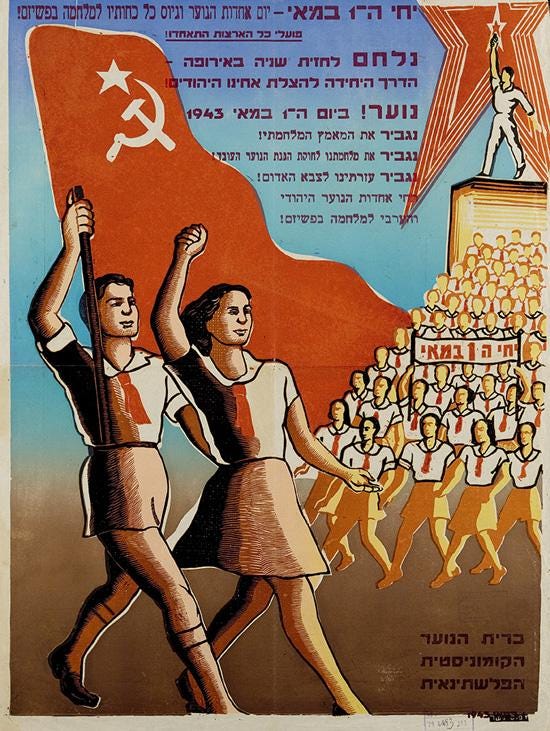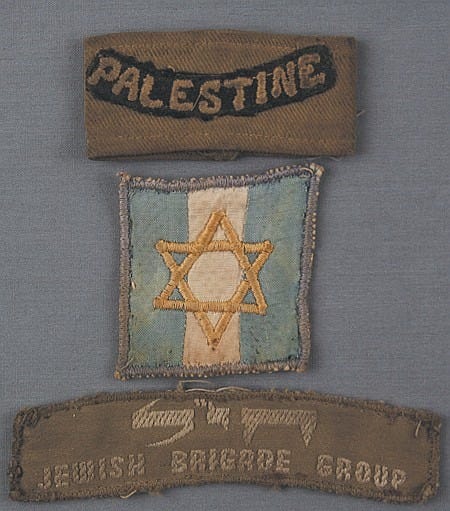To Straighten It Out, You Have to Overbend It
Not Zionist, not Ziophobe — this is for the Zioskeptics who seek nuance where others sharpen swords

So far, I’ve written two articles addressing very different audiences who critique The Palestinian Identity Manifesto and its accompanying petition on Change.org. One, The Battle for “Palestine”, was directed at Zionists. The other, Unmasking the Myths of Palestine, responded to those hostile to Zionism — people who weaponize “Palestinian identity” against Jewish self-determination. Each audience required its own language, tone, and framing.
But there’s a third, often overlooked group: those who are neither Zionists nor Ziophobes. My previous work wasn’t written with them in mind. This group tends to be liberal, intellectual, and aligned with what they perceive as “everything good” — human rights, coexistence, peace — and opposed to “everything bad.” Their stance is more skeptical than ideological, more universalist than tribal, and more emotionally invested in nuance than in polemic.
They deserve a different kind of response.
The challenge is that when they critique my work — which was intentionally confrontational, crafted to expose distortions — they often view it through a lens that expects balance rather than incision. They seek moderation where I offered a scalpel. And yet, their concerns matter. Not all non-Zionists are Ziophobes. Not all opponents of Ziophobia are Zionists. That complexity is what this piece is meant to engage — a piece written for what I’ll call the Zioskeptics.
In truth, each group — and perhaps each individual — requires a unique tone and approach. As Russian neurophysiologist and philosopher Aleksei Ukhtomsky wrote:
We can perceive only that which our dominants — that is, our patterns of behavior — have prepared us for. Priceless realities pass by our ears and eyes if they are not trained to hear or to see — if our activity and focus are directed elsewhere.
Ukhtomsky’s theory of the dominant — that consciousness filters reality through our preexisting mental priorities — remains a powerful framework for understanding why people respond so differently to the same set of facts.
And while it’s impossible to write thousands of articles tailored to every perspective, I’ll try here to speak directly to the average Zioskeptic. If this article doesn’t speak to you — or if you find much to critique — that may simply mean it wasn’t written with you in mind. In that case, feel free to explore my other pieces aimed at Zionists or Ziophobes. Or better yet, tell me who you are, what you stand for, and what you believe. I might be able to write something for you — or for the group you represent more closely.
Understanding the Zioskeptics — A Field Guide to Honest Misunderstandings
Some say anti-Zionism is “just criticism of a state.” Others dress it up in scholarly language or moral anguish. But scratch the surface of the Zioskeptic worldview, and you’ll often find a web of distortions, selective outrage, and boomeranged logic.
This article isn’t here to win hearts. It’s here to unspin the spin, confront the fraud, and restore clarity.
Let’s begin with the most common arguments of Zioskeptics:
1. “You’re erasing Palestinians!”
No—We’re un-erasing Jews and Israelis. The term Palestinian once applied to Jews as well, long before it was politically repurposed to exclude them. Jews published The Palestine Post, carried Palestinian passports, and represented Palestine internationally. Reclaiming that name doesn’t erase anyone—it restores what was stripped away.
2. “You can’t redefine ‘Palestinian’ to mean Israeli.”
We’re not redefining anything—we’re reclaiming. It was anti-Zionist movements that rebranded “Palestinian” to mean exclusively “non-Jew.” Discomfort with that truth stems from decades of deliberate distortion.
3. “But Golda Meir had a Palestinian passport!”
Of course Golda Meir had a Palestinian passport — she even called herself a Palestinian. That was the legal term for those living in the land before 1948. So thank you for proving, once again, that Palestine is Israel, and Palestinians are Israelis.
4. “This is Zionist propaganda.”
No—propaganda is pretending Jewish ties to the land began in 1948. Propaganda is erasing Jewish indigeneity while inventing replacement histories. The Manifesto doesn’t fabricate. It disrupts fabrications.
5. “Jews can’t be indigenous.”
Then no one can. If centuries of exile, continued cultural memory, sacred geography, and a native language don’t qualify Jews as indigenous, the term becomes meaningless. Their case is a textbook definition—whether accepted or not.
6. “But Palestinians are stateless!”
And many have been kept that way by design—by Arab regimes that benefit from their limbo. Jordan revoked citizenship. Lebanon ghettoized them. Syria killed them. Yet the outrage remains singularly directed at Israel. That’s not advocacy—it’s projection.
7. “Israel discriminated against some of its own citizens.”
Let me be blunt: I engage only with my fellow Israeli citizens about Israeli problems. That’s not meant to gatekeep or exclude — and it’s certainly not personal. I’ve said the same to childhood friends I’ve known my whole life, and they understand. Some conversations, for me, are sacred — not because the issues aren’t real, but because they’re too important to be reduced to talking points or weaponized in bad faith.
That said, if my words made you feel pushed away from something you were beginning to understand — or even support — then yes, I’ll talk with you. Not to debate Israel for sport, but to offer clarity.
8. “You’re ignoring Israeli injustice and Palestinian displacement.”
That’s a redirection. The Manifesto isn’t a peace plan—it’s a declaration of belonging. It acknowledges that past wrongs exist, but refuses to tie identity to unresolved grievances. People have the right to name themselves without first earning permission from their critics. Complaints about customs officers or religious zealots don’t outweigh a population’s right to affirm who they are. And foreigners with zero ties to our Israel-Palestine don’t get to dictate our terms of identity.
9. “People are radicalized by Israel’s actions.”
People are radicalized by social media, memes, and propaganda loops — not “actions.” If you're protesting Israel but never said a word about Assad’s chemical warfare, Iran’s executions, or Sudan’s genocides — you're not radicalized. You’re just selectively indoctrinated.
You’re not angry about war. You’re angry about Israeli self-defense.
10. “Even Israeli historians and Holocaust scholars say it's genocide.”
I raise the issue of identity theft, and you throw in unrelated quotes from Israeli leftists and dissident academics. Let’s be clear: those historians are part of Israeli society. They publish freely. They teach openly. Some testify against the government — and then go home in peace. Try quoting a Gazan academic saying something critical of Hamas. Oh wait — you can’t. They’re either silenced or dead.
So let’s not pretend this is about morality. It’s about weaponizing Israeli openness as a tool to destroy Israeli legitimacy. You don’t get to pretend you admire these critics while wishing the entire society they live in would disappear.
11. “Israel occupies Gaza, East Jerusalem, West Bank, Golan Heights.”
Occupation is a legal term. Self-defense is a moral one. And no, you don’t get to shoot at Israelis and then cry “occupation” when they shoot back.
12. “But there was a UN partition plan, and Palestinians were expelled!”
Correct. There was a UN plan. Jews accepted it. Arabs rejected it and launched a war of annihilation.
Result:
The side that wanted peace built a country.
The side that launched war lost land.
That’s how history works. Actions have consequences.
And yes, people were displaced. So were 850,000 Jews expelled from Arab lands — their homes stolen, their synagogues burned. Where are their UN agencies? Their right of return? Their global marches?
Why does only one group get eternal victimhood status?
Oh—and by the way—nowhere in any plan was the Arab state designated to be called “Palestine.”
13. “UNRWA, the UN, global public opinion all condemn Israel!”
Moral clarity doesn’t come from mob majorities or bureaucrats. It comes from history, truth, and survival.
Israel is not obligated to outsource its legitimacy to nations who wouldn’t survive five minutes under the threats Israel faces daily.
14. “You label critics of Israel as antisemitic.”
Let’s play this out. You're saying:
If someone criticizes Israel, and they’re called antisemitic, it’s unfair.
But if someone demonizes Israel uniquely, constantly, exclusively — that’s just “criticism.”
Sorry, no. If it walks like a hate campaign, barks like a hate campaign, and obsesses like a hate campaign, it probably is.
And let’s be honest — you’re not neutral. You don’t get this worked up about Sudan, Syria, or Iran. You reserve your full fury for Israel. And the Israelis notice.
15. “But I’m just critical. I’m not antisemitic.”
Then act like it. Criticize proportionally. Stop denying Jewish history. Stop supporting terrorists. Stop whitewashing Hamas. And stop lecturing Israelis on what their identity should mean.
Criticism is fine. Gaslighting is not. If you think every Jewish or Israeli trauma, claim, and fear is exaggerated — you’re not a critic. You’re an eraser.
16. “This is divisive.”
Truth often is. So is naming what others tried to erase. Division isn’t the Manifesto’s aim—clarity is. Reclaiming a stolen name may upset the narrative, but that’s not division. That’s correction.
Final Thought
We could keep expanding the list of arguments indefinitely, going in circles with slight variations of the same themes. But let’s stop here.
Zioscepticism dresses itself in academic robes, moral panic, and “human rights” jargon. But I genuinely believe many critics of Israel — maybe even you — aren’t acting out of malice. They’re shaped by powerful propaganda bubbles that distort reality and obscure history.
But perspectives evolve. Someone who once viewed Zionism with hostility — a Ziophobe — can, over time, become a Zioskeptic, a Ziofriend, or even a committed Zionist. Beliefs aren’t fixed identities; they shift with new information, changing realities, and maturing moral frameworks.
And let’s be clear: being a Zionist doesn’t require being Jewish. It simply means affirming the legitimacy and flourishing of Israel — the world’s only Jewish homeland.


